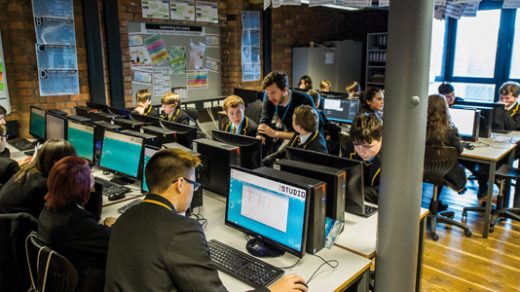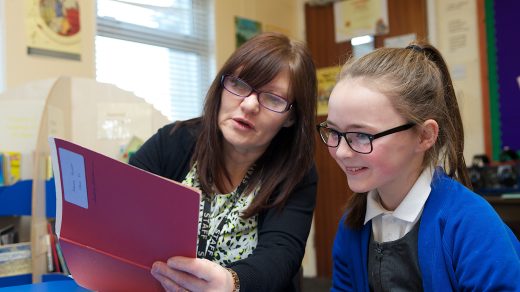State schools outperform private schools in core GCSE subjects after socioeconomic adjusting, new study reveals

Private school pupils in England no longer perform better at GCSE level than state school pupils in the core subjects of English, maths and science when the results are adjusted for socioeconomic background, a new study published today (21 November) by University College London (UCL) researchers has found.
Despite the gap closing in the core subjects, private school pupils continue to achieve stronger results in arts subjects, such as music, drama and art, even after adjusting for socioeconomic background.
 of a grade higher across all GCSE subjects, assuming eight were studied. Once socioeconomic status was accounted for, this difference was close to, and statistically indistinguishable from, zero.</p>
<p>But when just the core subjects were considered, state schools had the edge after accounting for socioeconomic status, achieving on average two thirds (66 per cent) of a grade higher than private schools in maths, two fifths (41 per cent) of a grade in science subjects and a slight advantage in English of 17 per cent of a grade, although the researchers say this is not statistically significant.</p>
<p>Private schools maintained their edge in the creative subjects, scoring just over half a grade higher after accounting for socioeconomic differences.</p>
<p>These results stand in contrast to evidence from different phases of the education system – both earlier, during primary school, and later, at age 18 – and in earlier cohorts, such as studies of pupils born around 1990 who took their GCSEs in 2006.</p>
<p>In both of these settings, private school advantage in academic performance has been found even after adjusting for socioeconomic status. A greater focus in state schools on the core subjects of maths, science and English might partly account for this change, the researchers said.</p>
<p>Lead author of the research, Professor Jake Anders (<a href=) UCL Centre for Education Policy & Equalising Opportunities), said: “It has long been assumed that the private sector outperforms the state sector at GCSE level and raw data indicates just that. However, this doesn’t allow for the vast socioeconomic differences between private and state.
UCL Centre for Education Policy & Equalising Opportunities), said: “It has long been assumed that the private sector outperforms the state sector at GCSE level and raw data indicates just that. However, this doesn’t allow for the vast socioeconomic differences between private and state.
“Over the last two decades state schools have increased their focus on the core subjects to deliver results, which is reflected here. There could also be several additional reasons why they have outperformed private schools, including a shift in focus for private schools at GCSE level.
“Private schools also have the resources to expose pupils to a rich variety of cultural experiences, which could go some way to explain why they produce stronger results in the creative subjects.”
Education policy since the late 1990s has prioritised a focus on science, technology, engineering and maths (STEM) subjects along with English, which critics of the policy say has led to a narrowing of the curriculum.
Professor Anders continued: “A small minority of children attend private schools in England, but these alumni are particularly overrepresented in high-ranking roles across the creative industries.
“While it is positive for social mobility that state schools are producing stronger results in the core subjects, inequality still exists – and is arguably becoming more pronounced – in industries such as acting, music and art.”
In England, less than one in ten children attend a private school at some point. Average fees across the UK are around £16,600 per year for day schools, with boarding school fees averaging nearly £22,000 per year. State schools receive on average £8,000 per pupil per year.
Private schools in England are almost exclusively funded by fees paid by parents or guardians, with a limited number of scholarships and bursaries available. This means that privately-educated children are almost exclusively from families with much higher incomes than the national average.
Co-author, Professor Francis Green, (IOE, UCL’s Faculty of Education & Society) said: “The results reflect the wider, non-core curriculum that private schools are able to offer with the resources available to them for this.
“State school alumni’s disadvantages in the creative world will not diminish until this gap starts to be reduced.”
The researchers had aimed to use GCSE data from the Department for Education’s National Pupil Database (NPD). However, many pupils in this cohort who attended private schools took international GCSEs (IGCSEs), which aren’t recorded in the NPD. Therefore, self-reported GCSE and equivalent IGCSE data from the Millennium Cohort Study (MCS) was used instead.
They then examined the relationship between GCSE performance and individual social factors, including family income and parental occupation status.
The Millennium Cohort Study, based at UCL Centre for Longitudinal Studies, follows the lives of around 19,000 young people born across England, Scotland, Wales and Northern Ireland in 2000-2002.





